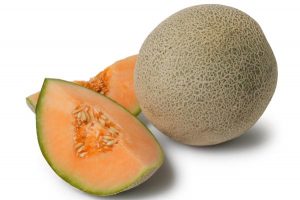About a week ago I was chatting with our contractor – we really spend too much time chatting instead of working, and Amy often intervenes – and somehow we got on about the microbiological risks of cantaloupe (or rockmelon as they call it here).
 This morning Australians awoke to the news from the NSW Food Authority that two people have died and eight were sick from Listeria-linked to cantaloupe (not the 3 dead and 7 sick reported earlier).
This morning Australians awoke to the news from the NSW Food Authority that two people have died and eight were sick from Listeria-linked to cantaloupe (not the 3 dead and 7 sick reported earlier).
All states and territories are working together to investigate the outbreak and to date they have identified ten cases in elderly patients in NSW (six), Victoria (one) and Queensland (three) with onset of illness notification dates between 17 January and 9 February 2018. All 10 cases consumed rockmelon prior to their illness.
The outbreak has been linked to a grower in Nericon NSW. The company voluntarily ceased production on Friday 23 February 2018, shortly after being notified of a potential link to illness and is working proactively with the Authority to further investigate how any contamination could have occurred in order to get back into production as soon as possible.
Any affected product is being removed from the supply chain, so consumers can be assured rockmelons currently available on shelves are not implicated in this outbreak, but people may already have listeria-infected rockmelons in their homes purchased at an earlier time.
Contaminated water, fertiliser, contact with animals or insufficient cleaning of rockmelons prior to sale are all risk factors for melons becoming contaminated.
The contamination is on the fruit’s skin, not in the flesh.
NSW Health director of communicable diseases Vicki Shepherd said, “If there are levels of listeria on the skin then when you cut it, it can be transferred into the surface where you then eat it.”
Our contractor said today, did you see the news, guess Doug knows a thing.
It’s easy to know a thing if you pay attention. Rockmelons have been repeatedly linked to previous cases of listeria, including an outbreak that killed 33 Americans in 2011.
A table (that needs to be updated) of cantaloupe-or-rockmelon-related outbreaks is available here.
